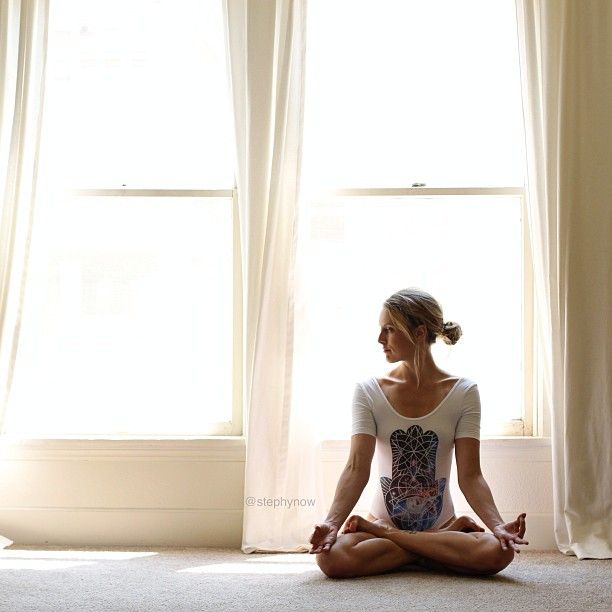Because the quality of your sleep isn’t the best, you probably feel exhausted during your day. You feel like you lose more and more energy throughout the day, and regardless of how tired you happen to be, every night, you still find yourself struggling with sleep.
And you are in a vicious cycle where your mood, motivation, energy levels and productivity decrease to their lowest point. You are more stressed out than ever, and you just feel completely helpless and lost. Even your skin has begun to look horrible.
When you don’t treat your sleep disorders and try to overcome them, you end up having to deal with more health issues such as weight gain, poor memory skills, uncontrollable emotions and so on. So if you want to avoid such things to happen to you, you need to make sure that your sleeping schedule is fixed and well respected.
There are fortunately many ways that can help you get your sleep under control once again, without needing to take any pills or consulting any doctor.
One of the best ways is meditation, especially meditation for sleep. It is highly effective, and is 100% natural and medication-free.
Scientists have recently been doing many researches regarding the benefits of meditation on sleep, and here are some ways meditation actually helps you fall asleep faster and improve the quality of your sleep:
Meditation helps producing the brain waves required for you to sleep

Image courtesy: www.pinterest.com
If you think that the quality of your sleep isn’t at its best because you spend your nights tossing around on your bed, then it must be because of an excess of beta brain waves in your brain, which normally controls our consciousness when we are awake.
Those brain waves are activated when we start thinking and thus engaging a specific part of our brain responsible for alertness, anxiety, decision-making, etc. Overthinking and having negative thoughts while in bed is also a way to stimulate that part of your brain which causes the emission of beta brain waves which are usually not needed when you plan to sleep. That is how it becomes harder for you to fall asleep, as you get more and more anxious the more time passes. To combat these negative thoughts and feelings of anxiety, some people try out alternative medications such as cannabis. The many compounds in cannabis including THC and CBD (which are 2 of the well-known ones), along with the flavorful terpenes are said to have a number of benefits for sleep. While the effects of these compounds vary from person to person, trying out a few Left Coast Gummies to relieve the anxiety and pull you into a deep state of relaxation, could be an approach to take. Dosages, too, can be different for each person. so it is important to research these things before consuming them. Cannabis can be paired with meditation as well, so as to facilitate that much-needed sleep of deep rest.
Meditation is here to help you deal with those negative thoughts, as you learn how to prevent yourself from responding to them. What meditation does is that it makes your brain produce more alpha, theta and delta brain waves which are usually responsible for rest and relaxation, thus making it much easier for you to loosen up and fall asleep. Those brainwaves emitted while you meditate are a good way to neutralize the beta ones that keep you awake.
You don’t HAVE to always adopt the relatively uncomfortable meditation posture to be a good meditator. You can use any adjustable bed like the Glideaway Elevation adjustable bed that will help you stay upright and as long as you can keep your focus in one place, the seated position on your adjustable bed will do just fine.
Meditation teaches you how to shift your focus to the present moment

Image courtesy: www.pinterest.com
How many times did you stay up all night worrying about all the tasks waiting to be done the following day, thinking and thinking about what you have to do and worrying about whether you will have enough time or whether you will succeed at everything or not?
That is something that happens to everyone, and, thankfully, it is actually okay and even normal to lose sleep over such things. In fact, some people even resort to consuming substances such as alcohol to rid them of the stresses and worries, thinking it’s something that will help them sleep better. This is a wrong idea that most people have, and drinking alcohol can actually hamper sleep quality in the long run. Using alcohol as a coping mechanism, many people tend to fall into a habit and are unable to go a single night without a drink. This, too, can be cause for insomnia and long-term sleep disorders. Meditation to stop drinking eventually and sleep better can be a very beneficial tool for the body as well as mind, helping reduce the habitual patterns of thinking and doing.
In this case, meditation helps you shift your focus back to the present moment instead of projecting yourself non-stop in the future. It makes you realize that what matters the most is what is happening now, and not what will happen after. What meditation does is that, with practice, it enables you to grow out of your space of worries and anxiety to one of calmness and peace, thus helping you to fall asleep faster than ever. You learn how to be aware of your thoughts, your feelings and your body. And that is how you become much more skilled at ignoring your thoughts, letting yourself fall asleep deeply.
Meditation at night, right before you go to bed, is one of the best ways to achieve a full night of quality sleep.
You can even do yoga at home to relieve stress and anxiety. Many different paths of yoga exist, such as hatha yoga, that can improve mental health. The ultimate goal of this type of yoga is to draw vital energy into the central channel and up towards the crown chakra. While there is a lot of spiritual depth to yoga, you do not have to gain a full understanding of it to start practicing. As a beginner, you could do yoga as simply a practice to help you remain mindful, which could help relieve a lot of your stress.
Meditation stimulates the production of melatonin
We have talked in a previous article of hours about the hormones involved in sleep, and we evoked and explored the role of melatonin. Basically, melatonin is a hormone produced by our pineal gland, responsible for our alertness during daytime and for the stability of our sleeping schedule.
Studies have shown that people who are used to meditating tend to produce much more melatonin when the night would approach, unlike those who didn’t meditate at all whose melatonin levels stayed low despite even after nightfall. So melatonin’s production was promoted by meditation.
Nevertheless, scientists still haven’t found an explanation to the relationship between melatonin levels and meditation, but regardless of that, it has been proved that meditating right before bed was a much better option to overcome sleeplessness than taking melatonin pills or any other type of sleeping medication.
Meditation makes you go through REM sleep more frequently than normal

Image courtesy: www.pinterest.com
Sleeping a lot doesn’t necessarily mean sleeping well. So if you happen to be extremely tired and lacking energy throughout the day despite being convinced that you are getting the sleep you need just because you have been sleeping for 8 hours every night, then you may be deceptively wrong about the way you evaluate your sleep. The quality of your sleep is actually determined by the quality of your REM sleep.
During REM sleep, your brain emits waves like the ones it emits when you are awake and deeply engrossed in thoughts or any other mental activity; waves such as the alpha and theta ones, but also mainly the beta ones. That is REM sleep is often considered as that stage in your sleep where you dream. It is the last stage of sleep and each time it is interrupted, your whole sleep is messed up and turns out to be completely useless because you end up being tired and fatigued throughout the whole day.
This REM stage is launched thanks to an area of your brain responsible for the regulation of melatonin production. And what scientists have discovered was that this area was very stimulated by meditation. That explains why people who are used to meditating are very likely to dream a lot as they go through many REM stages, and thus have the best quality of sleep.
How to meditate?
If you have never meditated before, then don’t worry, there are many simple and easy meditating exercises for beginners to get you more and more familiar with meditation, while still benefiting from all its advantages.
The best way would be for you to go through guided meditation before sleep as all you have to do is to lay down and listen to the instructions given to you (preferably through your headphones) in order for you to practice mindfulness. That is actually a highly effective way for you to fall asleep while meditating and getting a good night of sleep.
And the more you practice meditation, the more you will get used to it and the more you will master all the different tools you need for you to become good at meditating on your own, without the help of any book or audio guide, and that will be a sure and safe way for you to be sure of getting the sleep you need.

